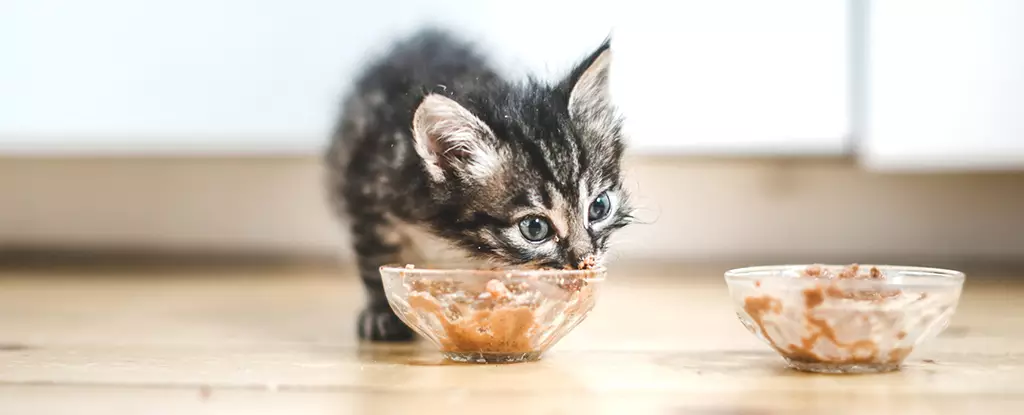Recent reports from Los Angeles County have shed light on a troubling outbreak of bird flu, specifically the H5N1 strain, affecting domestic cats. Several cases have been documented, with at least six fatalities among pet cats linked to the consumption of contaminated raw pet food and dairy products. These alarming incidents have become a point of concern not just for pet owners in the region but also for public health authorities, as they highlight the unpredictable nature of zoonotic diseases that can traverse species boundaries.
The first significant incident involved a household where five indoor cats tragically lost two of their members. The two cats consumed raw pet food that was later identified as containing the live H5N1 virus. Rapid onset of illness followed for all five cats; however, the severity varied significantly. Four of the animals exhibited pronounced respiratory issues, leading veterinarians to determine euthanasia was the most humane course of action for some. This incident underscores the risks associated with the consumption of raw pet food, which many pet owners assume is a healthier option.
Investigations revealed that specific brands of raw pet food, particularly ‘Monarch Raw Pet Food’, sold at farmers’ markets, were contaminated with the H5N1 virus. The Los Angeles County Department of Public Health (LACDPH) has advocated for immediate disposal of these products by consumers who may have purchased them. This recommendation highlights the critical need for stringent food safety practices in the pet food industry, especially as more consumers gravitate towards natural, raw diets for their pets.
Another case emerged from a single-cat household that sought veterinary assistance following an acute illness in their pet. Lab testing confirmed the presence of H5N1, despite the cat being an indoor pet and having consumed different brands of raw food products. The ongoing testing of these additional brands raises questions about the industry’s oversight and the potential for widespread contamination, which could culminate in further public health risk if not managed properly.
The outbreak also extends beyond raw pet food, as five additional cats have succumbed to the virus after consuming raw milk, which had been previously recalled due to H5N1 contamination. The broader implications of these occurrences are significant. H5N1 typically affects avian species, yet its emergence in domestic animals such as cats and dairy cattle raises a red flag regarding the virus’s ability to mutate and potentially spread among different species.
Fortunately, public health officials assert that the risk of human infection remains low at this time, with no evidence indicating local transmission among cats or from cats to humans. Nevertheless, the surge in infections among cats emphasizes the necessity for vigilance among pet owners, particularly those with close contact with wildlife or raw food products.
The LACDPH has issued a set of recommendations aimed at reducing the risk of exposure to H5N1 for both pets and their owners. First and foremost, pet owners are urged to avoid feeding animals raw dairy, meat, or poultry products. The associated health risks with raw diets extend beyond avian flu and encompass concerns related to bacterial infections, highlighting the precariousness of feeding pets raw food.
Furthermore, staying informed about food recalls is vital. Resources such as the FDA’s Recalls, Market Withdrawals, and Safety Alerts website serve as essential tools for pet owners to remain aware of potentially contaminated products. Increased awareness extends to recognizing signs of H5N1 infection in pets. Owners must be vigilant for symptoms, including respiratory distress, loss of appetite, lethargy, and other neurological indicators that could signal an infection.
The recent cases of H5N1 infection in cats within Los Angeles County are a stark reminder of the interconnectedness of animal health, human health, and environmental factors. As the threat of zoonotic diseases persists, it becomes increasingly critical for pet owners to remain vigilant and proactive. By recognizing the risks posed by raw diets, staying aware of food safety recalls, and monitoring pets for signs of illness, owners can safeguard both their beloved companions and themselves against emerging health threats. The situation serves as a crucial call to action to not only elevate personal awareness but to advocate for collective improvements in food safety and disease monitoring practices within the pet food industry.


Leave a Reply